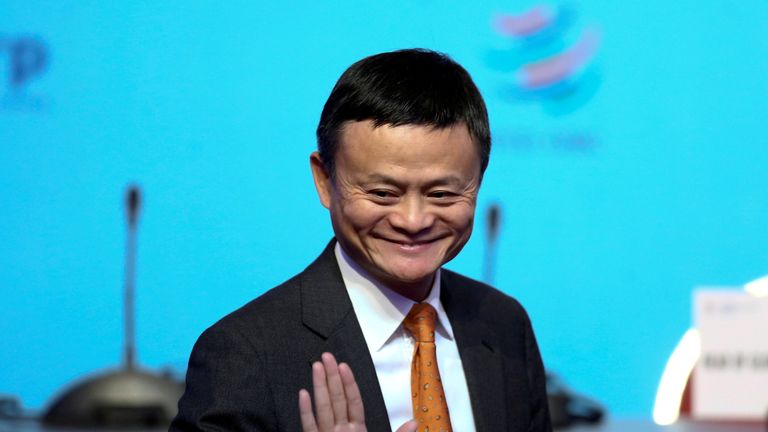Huawei’s founder saw his personal wealth decline by 10% over the past year as the tech company fought security battles with western governments, according to a new league table of China’s billionaires.
The list, published by the Hurun Research Institute, showed Ren Zhengfei’s fortune fell 10% to $2.8bn (£2.16bn) amid the US trade war with Beijing and a spying row that left Huawei frozen out of lucrative 5G work in several countries, including the UK.
The league table showed that China’s richest people with strong links to the digital sphere did best, as those whose wealth was founded in traditional areas such as manufacturing exports were hit by the country’s coronavirus lockdown at the beginning of the year.
Topping the table, for the third year in a row, was Jack Ma – founder of e-commerce giant Alibaba.
Surging demand for online shopping and other services during the height of the pandemic – and continued consumer caution – swelled his fortune by 45% to $58.8bn (£45.3bn).
He retains an 11% stake in the US-listed firm despite stepping down from running the company just over a year ago.
Closing the gap, at number two, was Ma Huateng, founder of Tencent, which is behind the popular WeChat messaging service.
His wealth was estimated at $57.4bn (£44.3bn) – a rise of 50% on August 2019.
Zhong Shanshan shot straight to the third spot following the flotation of his bottled water brand Nongfu.
The table showed his fortune at $53.7bn (£41.4bn).
Almost 2,400 individuals made the cut – a rise of 32% on last year – and the signs are that its billionaires will continue to flourish given China’s V-shaped economic recovery from the COVID crisis to date.
Rupert Hoogewerf, Hurun Report chairman and its chief researcher, said: “This year has seen the biggest wealth increase in the 22 years of the Hurun China Rich List.
“(A) stock markets boom and a flurry of new listings have minted five new dollar billionaires in China a week for the past year.”
He added: “China’s rich-listers added $1.5trn, the equivalent of half the UK’s annual GDP, to take them to $4trn, more than the GDP of Germany, the fourth biggest economy in the world.”



